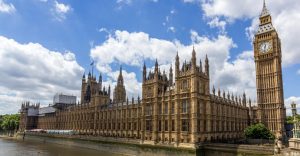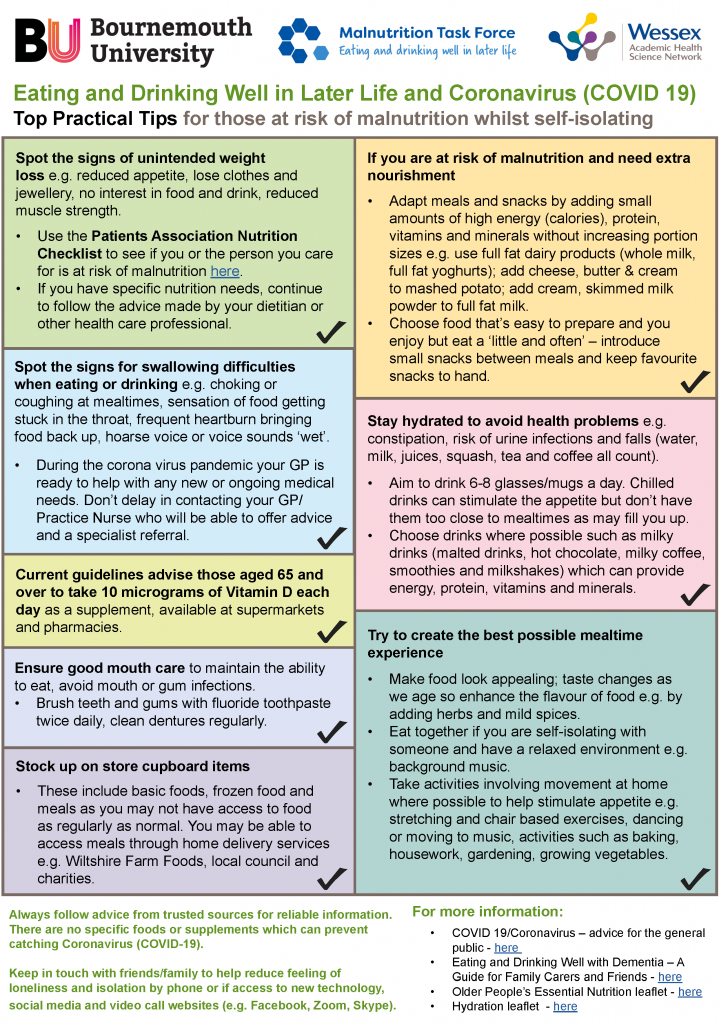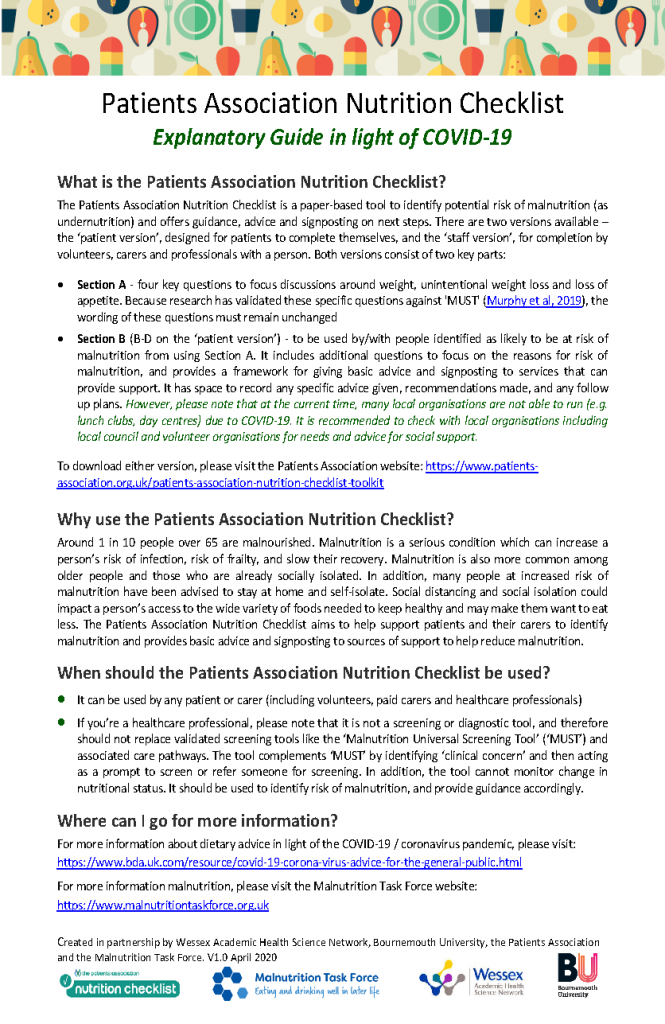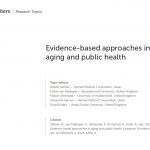Dissection of the Government’s HE support ‘package’ has dominated all this week and the Sutton Trust have a new report reminding us of the importance of considering disadvantage within HE access and participation.
HE ‘package’
The Government announced its ‘package’ to support the HE sector through the financial trauma caused by C-19. It has dominated all HE news this week so we’ve included a big feature on the most relevant content here. We will outline the facts, then unpack and interpret it, followed by sector stakeholder reaction, and a little humour.
The package doesn’t provide new money for the HE sector, it is not a bailout, rather it moves payments forward (a bit) to ease cash flow and, although it has not been explicitly stated, the Government continue their watch and see approach awaiting the outcome of the autumn term recruitment. There may be some emergency cash earmarked for OfS distribution should recruitment turn disastrous, however, Government have consistently stated they will not bail out what they consider as poor quality or failing HE providers and this will be an absolute last resort.
The ‘package’ has been about as popular as the proverbial regifted toiletry set from Great Auntie Doris. While the wait and see is an understandable policy measure (universities are way down the priority list, and it isn’t “urgent” (yet), the C-19 crisis has finally provided an opportunity for the Government to change aspects of admissions and quality that were previously limited by institutional autonomy (as enshrined in the Higher Education and Research Act 2017). While student number controls and new licence conditions are described as temporary, there may be long term impacts of these changes.
The (English) package aims to stabilise admissions across all providers as the recruitment of domestic students takes higher precedence against the expected drop in international student enrolment. To this end:
Stabilising admissions
Temporary student number controls will be put in place for domestic and EU students for academic year 2020/21, to ensure a “fair, structured distribution of students across providers”. These measures mean that providers will be able to recruit students up to a temporary set level, based on provider forecasts, which allows additional growth of up to 5% in the next academic year. We await more details of the actual numbers by institution.
If a provider does not abide by its student number controls, the Government will reduce the sums available to the provider through the student finance system in the subsequent academic year.
The Government have also made funding provision for an additional 10,000 places on top of 5% growth student number controls. 5,000 of these places are ringfenced for students studying nursing or allied health courses. The remaining 5,000 places will be allocated at the discretion of the Secretary of State for Education. Again, we await more details of where these will go.
The OfS is running a consultation on a new temporary condition of registration which intends to prohibit (registered) HE providers from any form of conduct which would have what they describe as a negative effect on the stability and/or integrity of the English HE sector.
- Examples include conditional unconditional offers, mass unconditional offers, offers not linked to prior educational attainment, tempting students with incentives such as free laptops (a strange choice of example given the current virtual learning concerns for disadvantaged students) or cash incentives.
- Any admissions tactics which are considered to put undue pressure on students or conduct leading to commercial advantage over other providers are a big no no, with a whopping fine per case (£500,000+) if the institution breaches this. The justification for the fine is to negate the positive financial effects any institution would feel from the recruitment boost as a result of engaging in the prohibited behaviour.
- There is also concern over how the OfS intend to implement this retrospectively – with some concerns it may seek to outlaw and punish activity that was not prohibited before the C-19 crisis. The proposal is to look back to behaviour since 11th March and for patterns or linked actions by institutions since then.
- Although this is a consultation, the sector is expecting the conditions to be implemented and there are questions over how temporary it will actually be given the expected long term effect of C-19 on university finances. This condition is seen as a significant erosion into the autonomy of universities over their admission policies which has always been enshrined in law, most recently in the HERA legislation.
- OfS have blogged regulator warns of penalties for recruitment practices.
UUK is working on a new sector agreement and statement of fair admissions practice. Including adhering to a new principle where HE providers will not put undue pressure on students, and new rules to restrict destabilising behaviours such as use of unconditional offers at volume. Both key aims the Government has been trying to influence for several years.
Wonkhe added more detail on the conditions:
- Outlawed actions would include making conditional unconditional offers, making a lot of unconditional offers (or very low offers), offering gifts or discounts designed to attract students away from their original choices, and making false or misleading statements (including comparative claims) about one or more providers.
- Outlawed actions would also include using financial support packages made available by the government for purposes that do not serve the interests of students or the public, failing to secure the standard of qualifications awarded to students, making offers to international students that significantly lower the academic or language requirements for a course, taking advantage of OfS relaxing particular regulatory requirements during the pandemic, and even “bypassing, or seeking to bypass, the admissions processes of the University and Colleges Admissions Service (UCAS), where the provider would normally use UCAS processes”.
- If that all sounds wide, it’s because it is. It’s another of these huge, open-to-interpretation regulatory nets designed to catch all sorts of behaviour. It’s significant – the new condition would enable OfS to consider imposing penalties that would “cancel out any financial benefit to providers of acting inappropriately”. It doesn’t so much chip away at as kick a big chunk out of institutional autonomy. But the question remains whether now is the right time for providers to kick up a fuss about autonomy, when the sector is desperate for financial support?
Research Professional reported that failing to abide by “voluntary requirements” is also included. Quite the catchall! On the conditions consultation Research Professional state: …But these are not normal times. The condition—which is out for consultation but is almost certain to be implemented—could even be “actively renewed” in the future. Take a look at RP’s article here – well worth a read! Key excerpts:
- When considering a fine, the OfS would look at whether universities have stuck to Universities UK’s framework on fair admissions practices for 2020-21, agreed as part of the government’s so-called bailout package to help institutions through the coronavirus crisis.
- But Smita Jamdar, head of education and partner at law firm Shakespeare Martineau, warned the proposals in the consultation were “so much broader” than admissions and could mean the condition applied to institutions’ actions in other areas such as employment.
- “It has got a huge potential for unintended consequences”, Jamdar told Research Professional News, adding it was a “quite frightening set of proposals when you put it all together”. Jamdar also warned universities could expect fines to be handed out if the current proposals are carried out, and pointed out that breaches could be back-dated to 11 March. “It’s quite clear they are putting this in place and they intend to use it,” she said.
Smita has more detail on her viewpoints in her own blog on the topic.
Supporting Students
The last few years have seen an increase in the number of students entering clearing, many joining the admissions process for the first time at clearing having not previously applied to university. The government package sets out to boost the role of clearing – and specifically the adjustment part of it – even further.
In conjunction with UCAS the Government have arranged for both ‘placed’ and ‘unplaced’ students to have a greater – or at least more visible – opportunity to change their choice of provider/course once they receive their grades. This will be supported by a new service that can suggest alternative opportunities, based on their achievements, their course interest, and other preferences.
UCAS is also working with BBC Bitesize to give students enhanced advice on applying to university and Clearing. In the weeks leading up to results day, UCAS will be running a high-profile and multi-channel campaign, ‘Get Ready for Clearing’.
This fits well with the Government’s agenda – they are concerned that able students, especially disadvantaged ones, are not accessing high tariff ‘prestigious’ institutions– and therefore not receiving the social mobility employment boost associated with graduating from certain HE institutions. As has been pointed out by many, this does not support the stability of the sector, and confirms that protecting the sector is not the government’s first priority .
- The 5% increase cap will allow room for growth and many “prestigious” institutions will have a significant amount of capacity as they usually take high numbers of international students, who are expected not to come this autumn. This is interesting as these same institutions have fought back for a long time against arguments that “foreign” students take places that home students could take. The reality of course is that international students help to fund places for home students by paying higher fees – so the financial impact of this change in balance is quite complex.
- The UK is still coming out of the demographic dip and there was already increased competition for domestic students. The lowest tariff institutions are expected to fare worst. These may be the institutions which also have the lowest financial reserves, take the highest number of disadvantaged and local students, and have higher associated drop out rates (at least partly as a result of their student profile). A gloomy picture given the Government has stated it won’t bailout “failing” or “poorer quality” providers.
- However, a little discussed element in recruitment is localisation – students attending institutions near to them locally or regionally. This year, students may choose to stay close to family for lots of reasons, including ongoing restrictions on travel, or a wish by students to stay closer to home. Given the publicity about rent payments this summer, some new students may decline to commit to accommodation contracts and choose to stay closer to home instead.
On the 5% admissions cap Research Professional state:
- That is quite a loose cap and for some institutions it represents the opposite of a bailout—they will feel that the pistol has been fired for open season on their students. For universities struggling to recruit before the pandemic, the news that other institutions can now maximise recruitment of the limited number of UK school leavers will seem like the government has just poured a bucket of water into an already sinking canoe.
Wonkhe comment:
- From a student perspective, the offer is even thinner – the Office for Students has clarified that universities can allocate student premium funding and expenditure committed in access and participation plans to provide additional financial support for students, which is far from addressing the economic impacts of Covid-19 on students’ families or the inherent lack of protections in the system for students.
Michelle Donelan also confirmed that students should continue to pay full tuition fees even if provision from Autumn 2020 is online. While this supports Universities (and stops Government from having to fund even more to stabilise them) there is, of course, a policy point emphasised in her tweet: To be clear, we only expect full tuition fees to be charged if online courses are of good quality, fit for purpose & help students progress towards their qualification. If Unis want to charge full fees they will have to ensure that the quality is there. Reading the comments to Donelan’s tweet also paints an interesting picture of the public’s perspective.
Student Fee Petition
The Commons Petitions Committee has rejected the government’s initial response to a petition requesting the reimbursement of 2019-20 student fees due to Covid-19 and industrial action. The committee felt the initial response did not address the issue directly. The petition received 336,265 signatures (see this map of the signatures’ locations, including Bournemouth West – BU’s constituency). The Petition is now awaiting a date for a parliamentary debate (which may not be as exciting or drastic as it sounds, and potentially will go over the same Government messaging we have heard already).
The petition stated:
- All students should be reimbursed some of this year’s tuition fees as universities are now online only due to COVID-19, with only powerpoints online for learning materials which is not worthy of up to £9,250. Furthermore, all assessments are being reconsidered to ‘make do’ and build up credits.
- Field trips have also been cancelled which our tuition fee was to pay for. There is also no need for accommodation which students have paid between £4,000-£8,000 for in advance and adding to their student debt. Lastly, the extended strikes of this year have severely disrupted student-staff interaction and personalised help, with staff not replying to emails or available for meetings. Grading is also being delayed. Overall, university quality is poor this year and certainly not worth up to £9,250.
If you scroll down on this page you can read the Government’s response to the petition. The Petition’s Committee rejected the government response. They require the Government to provide another response because they felt that the response did not directly address the request of petition. Once the Government issues a further response it will be published on the same page.
Parliamentary Question:
Q – Caroline Lucas: To ask the Secretary of State for Education, whether (a) his Department and (b) the Student Loans Company plan to provide support to (i) current and (ii) prospective students whose parents have lost their jobs as a result of the covid-19 outbreak by (A) facilitating access to full maintenance loans and (B) reinstating maintenance grants. [38455]
A – Michelle Donelan:
- Many higher education providers will have hardship funds to support students in times of need, including emergencies. The expectation is that where any student requires additional support, providers will support them through their own hardship funds. Contact details are available on university websites.
- In addition, students will continue to receive payments of maintenance loans for the remainder of the current academic year, 2019/20. Students who need to undertake additional weeks of study on their course in the current academic year may also qualify for additional long courses loan to help with their living costs.
- Parents who have lost their jobs and whose income has dropped by 15% or more in the current financial year will be able to apply to Student Finance England to have their children’s living costs support reassessed for the 2020/21 academic year from 1 August 2020 onwards. This will increase the amount of support students and prospective students are entitled to in 2020/21.
- Information for parents on how to apply for a current year assessment is available on the Student Finance England website at: https://media.slc.co.uk/sfe/currentyearincome/index.html.
International Students
The Government has stated it will work to update the International Education Strategy, designed to support the recruitment of international students, by autumn 2020, in respond to the impact of COVID-19.
They have also restated the commitment to a graduate immigration route launching in summer 2021, giving international students (who graduate summer 2021 onwards) the right to remain for two years after their studies and providing an incentive to study in the UK. This includes students who have already started their courses, even if, due to coronavirus, they have needed to undertake some of their learning remotely.
The Government is ‘applying discretion’ to ensure that international students are not negatively impacted if they find themselves in a position where they cannot comply with certain visa rules as a result of the COVID-19 outbreak.
Much of the media coverage on the prospects of international students to commence HE provision in autumn 2020 has been negative. However, several opinion surveys have hinted that prospective students remain committee to UK study. Here is another one – Wonkhe report that it might not be all bad news for international recruitment – a new survey today from IDP Connect finds that 69 per cent of a sample of nearly 6,900 prospective students applying to universities in Australia, Canada, New Zealand, the UK, and the US are intending to commence their studies this year as planned. Only 5 per cent expect to abandon plans to study overseas.
However, the UK face to face nature still seems to be the sticking point. Wonkhe continue: The survey found a huge willingness to start learning in January 2021 if this meant that the course could begin with face-to-face learning. Just 31 per cent would be happy to start online and move to the campus later on. Exposure to international culture is clearly a key component of the decision to travel for study.
Of course, another unanswered question is what happens if lockdown goes really long – would the post-study work visa still be honoured if all of the course is delivered online and the student is never resident in the UK?
Financial Sustainability
The Government will bring forward the second term tuition fee payments (expected to be worth £2.6bn) for providers so that they receive more cash in the first term of academic year 20/21 to help with cashflow issues. Currently HE providers receive the tuition fee payments in this profile: **25% on October, 25% in February, 50% in May. Instead the second payment will be brought forward – it’s not clear when it will be paid. That’s not a big shift.
Alongside this the Government have reiterated that HE providers are eligible to apply for Government support schemes, including the Coronavirus Business Interruption Loan Scheme (CBILS), Coronavirus Large Business Interruption Loan Scheme (CLBILS, COVID Corporate Financing Facility (CCFF) and the Coronavirus Job Retention Scheme. All of which are not straightforward for the HE sector due to the sources from which our finance comes. However, the OfS estimates these schemes could be worth £700m to the sector.
It comes with strings attached. HE providers are expected to make efficiencies. Furthermore, the bringing forward of tuition fee payments will mean very careful management of finances to cover the whole academic year and avoid fresh cashflow problems further down the track.
The Government state that they
- “will only intervene further where we find there is a case to do so, and only where we believe intervention is possible and appropriate, and as a last resort. In such instances, DfE will be working with HMT and other Government departments to develop a restructuring regime, through which we will review providers’ circumstances and assess the need for restructuring”.
The sector has interpreted this as bespoke individual support, with a host of conditions attached (potentially including losing land), and the erosion of the management of the institution.
Research Professional comment:
- The £2.6bn on offer is neither a grant nor a loan. It is an advance payment of tuition fees from the next academic year. Theoretically, this will smooth immediate financial shortfalls. But it will also mean that universities have to cut their cloth further down the line.
- A haircut is coming, says the department. The advance payments will “help universities better manage financial risks over the autumn, including taking steps to improve efficiencies and manage their finances in order to avoid cash flow problems further ahead.” ‘Efficiencies’ is an ominous word at the best of times… It is very clear indeed that the government has no appetite to bail out badly run universities.
The Government has also set aside £100 million to purchase land and buildings to create new or expand schools and colleges. While this money isn’t solely for purchasing HE assets many HE institutions do have large estates with substantial potential. Once again, the Government has thought carefully about its ideals and seen an opportunity to acquire land to meet its policy ideals. During Theresa May’s time as PM one of her big pushes (which was unsuccessful) was to bring HE, FE and schools together in collaboration to improve quality, opportunity and cohesion within communities. Sharing resources and expertise. Potentially acquiring land and placing conditions on failing institutions seems another wizard wheeze for overcoming the reluctance of the HE sector to get behind the initiative.
Wonkhe comment:
- The Government expects [that] access to the business support schemes, reprofiling of public funding and student number controls should be sufficient to help stabilise most providers’ finances, and that should certainly be the first port of calls for providers.
- This implies that a calculation has been carried out using OfS financial sustainability data and projections on student numbers that may or may not turn out to be accurate. We can’t see those calculations, as OfS’ annual report on the financial sustainability of the sector is missing in action. The sector would want to see the workings so that if the wider situation follows worst-case scenarios (mass deferrals of current students, even worse international numbers, etc.), the government could be approached with a freshly minted begging bowl.
- That ominous paragraph also describes the development of an HE “restructuring regime” in which DfE would review providers’ circumstances and assess the need for restructuring – and where action is required, this will come with “attached conditions.
And some breaking news – the OfS on 6th May published the outcome of their recent consultation on cuts to OfS spending. Bad timing, as the cut in budget and the consultation all started before the pandemic hit.
A selection of Parliamentary Questions
Q – Colleen Fletcher: To ask the Secretary of State for Education, what assessment his Department has made of the effect of the covid-19 outbreak on (a) the number of (i) international student numbers and (ii) domestic student numbers intending to take up a university place in the 2020 academic year and (b) research and innovation funding. [39637]
And
Q – Rachel Hopkins: To ask the Secretary of State for Education, what steps his Department is taking to support UK universities affected by reduced international recruitment as a result of the covid-19 outbreak. [38988]
A- Michelle Donelan:
- We are very grateful for the work that universities are doing in supporting students, undertaking ground-breaking research and providing specialist equipment. We are working closely with them to understand the financial risks and implications that they might face at this uncertain time.
- The COVID-19 outbreak will have an impact on international students. The government is working to ensure that existing rules and regulations relating to international students, including visa regulations, are as flexible as possible under these unprecedented circumstances.
- My right hon. Friend, the Chancellor of the Exchequer, has also announced an unprecedented package of support, including the Coronavirus Job Retention Scheme and a range of business loan schemes, to help pay wages, keep staff employed and support businesses whose viability is threatened by the outbreak. We recently confirmed universities’ eligibility for these schemes, and we are working closely with the sector, the Office for Students (OfS) and across the government to understand the financial risks that providers are facing, stabilise the admissions system and help providers to access the support on offer. [This response was provided before the package was announced.]
- The Department for Business, Energy and Industrial Strategy and UK Research and Innovation analysts are working closely with the Department for Education, OfS and wider non-government stakeholders to undertake a rapid programme of analysis to better understand the impact of COVID-19 on a range of research institutions including universities and analyse suitable policy responses.
Q – Emma Hardy: To ask the Secretary of State for Education, what steps he is taking to engage with (a) small and specialist higher education institutions, (b) institutions that are not members of Universities UK and (c) universities in remote, rural and coastal areas on their financial sustainability as a result of the covid-19 outbreak. [41578]
A – Michelle Donelan: answer here, but it doesn’t specifically mention rural or coastal universities
Research
In England, the Government will bring forward £100 million of quality-related (QR) research funding for the current academic year for ‘vital’ activities to address some of the immediate pressures being faced for university research activities and “to ensure research activities can continue during the crisis”. The QR top up is intended “to offset short-term impacts caused by the coronavirus outbreak, including alleviating immediate cash flow issues and where other income which would normally pay for research is no longer available”. Research Professional state: This does not come close to the cross-subsidy that research receives from the £7bn in tuition fee income that international students provided last year.
A joint DfE/BEIS Ministerial Taskforce – the University Research Sustainability Taskforce – will also form, jointly led by Science Minister, Amanda Solloway, and Universities Minister, Michelle Donelan.
It aims to act as an advisory forum for ministers and will:
- share information and intelligence about the health of the university research and the knowledge exchange carried out by and within HE providers
- identify potential impacts on the sustainability of university research and knowledge exchange directly arising from the response to coronavirus
- share intelligence on government and other sources of funding for research, and develop approaches building on these to address the impacts of coronavirus and protect and sustain HE research capability and capacity
- where possible share evidence of the impacts on university research and knowledge exchange of the taskforce’s advice
The Government have stated they expect universities will also want to develop their own proposals to build an efficient, effective and sustainable research and development system, focused on driving recovery. (See Chris Skidmore’s comments below.)
Research Professional have this to say:
- It is the research proposals that have received the most criticism. A £100 million advance on quality-related funding represents just 5 per cent of what Universities UK had asked for…Why, then, was there so little in this announcement about shoring up research? If the research budget is due to double in five years, why the reluctance to spend now?
- Writing exclusively for Research Professional News today, former universities minister Chris Skidmore appears to think there is more on the way—accepting that while £100m “may not be what the wider sector was hoping for…it remains a promising start”…“This first £100m of additional QR funding should be welcomed, but universities should try to do all they can to demonstrate its vital importance for the Covid-19 recovery—by going out to sell its benefits together,” he says. “Ideally, institutions should publicise and highlight where this money will go, working in collaboration where possible to demonstrate its necessity.
- …Was there a clue too in the statement from Research England’s executive chair David Sweeneyyesterday? He said: “The higher education package announced today builds on some detailed proposals recently from UUK…English universities will want to similarly develop more detailed proposals to build an efficient, effective and sustainable R&D system and Research England looks forward to working with them and the government to achieve that end.” In the politesse of statements from senior civil servants, ‘universities will want to’ usually means ‘universities should hurry up and get on with’.
- Following the announcement of the underwhelming bailout plan, we spoke to several well-placed figures in the research firmament. According to one of them, the government feels that while there has been some good thinking on the education side from universities, there has been less thought on the research side. They have “talked turkey on education, now it is time to talk turkey on research”, we were told.
- In other words, ministers are not simply going to release £2bn into university accounts without a quid pro quo. As a number of sources close to government told us yesterday, there will be no substantial cash injection for research without recognition from universities that they have a shared responsibility to contribute to the post-coronavirus recovery. In other words, what are universities going to put on the table and what is the government going to get out of it? We understand that the government is looking for movement on topics such as: regional inequality, or levelling up; skills and training; and precarious contracts for researchers.
- …By allowing the Office for Students to consult on sweeping new powers, universities have put their admissions autonomy at risk. Do they really want to do the same with research in return for the false security of 100 per cent full economic costs?
Meanwhile Wonkhe note that:
- UKRI hasupdated its useful “guidance for the research and innovation communities” to incorporate research focused aspects of yesterday’s government announcements. It links to Research England’s brief note on the funding advance related to next year’s QR allocation.
And Scotland have announced their own £75 million research boost for Scottish universities.
The Guardian has an article by Chris Skidmore
On HEPI former director Bahram Bekhradnia describes the proposed student number cap as “unworkable”.
Legal firm Pinsent Masons ran the article UK higher education restructuring ‘inevitable’ without targeted support stating the UK university sector should brace for potential insolvencies and reluctant mergers as the medium term impact of the coronavirus pandemic becomes clear. They base their analysis on the London Economics & UCU report of several weeks previous (the report has not escaped criticism for aspects of its calculations and assumptions).
Wonkhe also have lots of blogs, of course, here are some:
- What’s in the support package and what does it all mean? Debbie McVittyreviews the government’s support package for universities.
- There is mention of a higher education “restructuring regime” buried in the DfE press release – Jim Dickinsonwonders what that might mean if the package falls short.
- It unexpectedly appears in the sector support package, but what might Clearing Plus mean for an already unstable 2020 UCAS cycle? David Kernohanapplies himself.
And Michelle Donelan also responded to a parliamentary question outlining the Government’s package.
Finally Research Professional’s spoof column Ivory Tower has a particularly good grasp of the ‘bailout’, especially as it was published in advance of the Government’s announcement of the ‘support’ measures. Do read Spads: bailout for a little light relief. (If you hit a log in page from the link select Bournemouth University and then log in with your BU username and password.)
What next?
The support package has been announced and whilst the dust is settling sector press is asking what next for the ‘new normal’? Both Wonkhe and Research Professional (RP) ran features on it on Wednesday. RP considered the new normal from the institutional perspective of what could open and how social distancing could be maintained. The blog is a neat consideration of the complexity of the HE context. Excerpt: The pressure will therefore be on institutions to open their doors for educational business as soon as possible, especially given student grumblings about paying full fees for courses that are now being delivered entirely online. However, as an educational setting, it is probable that universities can expect to be handed guidelines by the Department for Education as well.
Wonkhe tackle risk, audit and the student interest but from a strategic University Board perspective. Here are their series of blogs:
- Despite the challenges boards of governors are facing, Debbie McVitty discovers an appetite to use the Covid-19 crisis as an opportunity for innovation.
- Boards of governors are moving from crisis management to strategic planning. KPMG’s Justine Andrew – herself a university governor –sets out the big strategic questions, and how boards can be confident they’re getting the right answers.
- Risk management, audit, and strategic planning have all had a role to play in the way the sector has responded to Covid-19. And, as David Kernohan finds out, they will play a huge role in the return to a “new normal”.
- Jim Dickinsonthinks through the trade-offs that may be required as boards of governors consider how to protect the student interest during Covid-19.
RP also state that AdvanceHE is launching an international project this week to help university leaders share information and find solutions to the difficulties posed by a socially distanced campus.
Education Select Committee
The Education Select Committee met this week to question Secretary of State for Education Gavin Williamson. Much of the Committee session focused on school aged children alongside disadvantage and SEN concerns; exam grades for FE courses including BTECs were touched upon. HE content has mainly been superseded by the Government’s support package announced after the Committee met. However, it also covered international students (no answer from Williamson), the difficulty in taking English language tests, and there was still no answer on nursing tuition fees. Dods summarise the nursing exchange:
Halfon [Select Committee Chair] said that “apparently” the Department for Education had not clarified whether nursing students who worked for the NHS during the pandemic would still be paying tuition fees. Pressed on this, the secretary of state said he would come back to the committee.
The Minister reiterated that a response to the Augar review is still expected around the time of the next Spending Review. Also that T Levels will go ahead in the original timeframe set out because the introduction of T-Levels and raising the status of vocational qualifications was “one of the most important tasks this Government had”.
Finally Johnson asked about domestic students who were stuck at university alone and unable to return home. The Government would “very much” want to facilitate their return, Williamson said.
On lessons the DfE have learnt from the crisis Williamson thought there were many. The ability to support children within the home and through holidays had been really transformed, he said. The department recognised that resources could be much more rapidly shared and they would be looking at how this could be used to reduce the workload for teachers. Additionally, by moving tribunals online, the department were getting through them much more rapidly, the committee heard. (Summary of the Minister’s response supplied by Dods.) The Education committee also published Ministerial letters for transparency:
- Letter from the Secretary of State – Update on the Department for Education’s response to COVID-19
- Letter from Vicky Ford (Minister Children & Families) on vulnerable children and other updates from DfE response to C-19
- Letter from the Secretary of State on the Spending Review
Sutton Trust
The Sutton Trust published a brief on the impact of covid-19 on university access. The research surveyed 511 university applicants (pupils aged 17 to 19); found that working class applicants are more likely to be worried about the impact on them than their middle-class peers. Also that almost half of university applicants think that the coronavirus crisis will have a negative impact on their chances of getting into their first-choice university. The report also covers poll of 895 current university students raising their financial concerns resulting from the pandemic.
Access, Participation & Success
Social Mobility Commission
Chair of the Social Mobility Commission, Dame Martina Milburn, has resigned. The press points out that the social mobility commission has lost two Chairs in 2.5 years. Her predecessor Alan Milburn resigned (en masse with all other members of the Commission) in frustration at the Government’s failure to do more to tackle social mobility. Dame Martina stated she was resigning “with deep regret, and after several sleepless nights” her substantive role as Group Chief Exec of The Prince’s Trust required her full commitment. Her letter states:
- I am extremely proud of what has been achieved at the Commission in the last two years – appointing the 12 very diverse commissioners, re-establishing the secretariat and commissioning a variety of reports from the State of the Nation to an employers’ toolkit. Currently, we have 16 reports in the pipeline, have conducted a popular series of webinars for employers and have begun to form partnerships with bodies such as the metro-mayors and with other important commissions. We have also brought the social mobility charities together and appointed a range of social mobility ambassadors.
- However, it is not nearly enough and given the strong links between social mobility and poverty I fear this current crisis will only serve to make social mobility harder than ever. My reflections from my time in office are that appointing a Chairman on three days per month, as I was, has proved a real challenge. To make an impact, what the secretariat needs is an executive chairman on at least three days per week or a different structure perhaps something more akin to that of the Children’s Commissioner?
She also stated that either of the Deputy Commissioners she appointed are capable of taking over her role.
Education SoS Gavin Williamson responds to her letter here.
Other blog posts
- The BAME degree-awarding gap is likely to be an even bigger issue now. Gurnam Singhreflects on what universities should do next (Wonkhe blog).
- The University Mental Health Advisors Network (UMHAN) blog covers the OfS briefing on supporting student mental health. Excerpt: given the disruption to normal study patterns, and potential longer-term changes to higher education as a result of the coronavirus pandemic, it is possible that universities and colleges will see new patterns in their students’ mental health and wellbeing emerge. They also plan a White Paper setting out good practice and recommendations.
- The Guardian has an article written by the Master of Birkbeck explaining why unconditional offers for foundation years are important for social mobility
Finally another Guardian piece bringing to life the rhetoric around disadvantaged students struggling with online access
Disadvantaged Catch Up Plan
The Education Policy Institute has published a policy paper with proposals to prevent the disadvantage gap from increasing due to C-19. Before the outbreak of Covid-19, EPI research found that disadvantaged children are already on average one and a half years of learning behind other pupils by the time they take their GCSEs.
Graduate Employment Outlook
Wonkhe report that
- the Office for Budgetary Responsibility (OBR) forecast of a 6.1 percentage point increase in the unemployment rate due to the impact of Covid-19 will have a disproportionate effect on the employment prospects of young people, according to a new briefingfrom the Resolution Foundation. Graduates would have a 13 per cent lower likelihood of being in employment three years after completing their education, with non-graduates seeing an even worse impact.
- There’s also bad news on pay – with forecasts suggesting real hourly graduate pay would be, on average 7 per cent lower two years on. But the recession will disproportionately hit sectors where young people tend to work – non-food retail, hospitality, travel, the arts, and entertainment. One year after having left full-time education, more than one-third of non-graduates, and more than one-in-five, graduates would expect to work in a sector that is now mostly shut down.
- The briefing suggests that – as in previous recessions – young people will be more likely to remain in education rather than enter the workforce. However, the demographic dip will make it easier for the government to offer support for those making this decision.
Youth movement:
- 70 of the country’s leading youth charities, employer groups and experts have united to form the ‘COVID-19 Youth Employment Group’, a cross-sector emergency response to rising concerns about the economic and educational impact of coronavirus on young people. The Youth Employment Group is led by Impetus, the Youth Futures Foundation, The Prince’s Trust, Youth Employment UK and the Institute for Employment Studies. It will design, deliver, and campaign for solutions to the immediate and long-term impact on young people’s employment prospects, particularly those who already face considerable challenges entering the labour market.
- As research increasingly warns of the potentially catastrophic impact on young people’s future employment prospects, there is a clear need for a rapid cross sector approach. The group will work to ensure young people receive quality support now, as well as helping plan for a healthy recovery of the youth labour market post-lockdown.
- The Institute for Fiscal Studies (IFS) has warned that younger workers will be hit the hardest, as they are nearly two-and-a-half times more likely to work in a sector that is now shut down. The research also shows that on the eve of the crisis, sectors that shut down as a result of social distancing measures employed nearly a third (30%) of all employees under 25; compared to just one in eight (13%) of workers over 25.
- The group’s membership meets virtually every week as they begin to pool together expertise and develop rapid solutions during and after lockdown. They have set up a LinkedIn Groupfor those interested.
Parliamentary updates
Online Voting: Chair of the Commons Procedure Committee, Karen Bradley, has written to Speaker Sir Lindsay Hoyle to confirm that the remote voting system for MPs is now ready to go live. The confirmation stated the system is suitable ad secure as long as MPs behave: MPs will have a “personal responsibility to ensure the integrity of the system”, a warning against letting others vote on their behalf. And with a tone as stern as the OfS’ she emphases: It is highly likely that any action by a Member which led to an authorised person casting a vote in a division would constitute a contempt of the House and a breach of the Code of Conduct, and would be likely to be punished accordingly.
Parliamentary Questions
Schools – Q – Alex Sobel: To ask the Secretary of State for Education, whether his Department plans to allow parents who are in the covid-19 at risk groups to decide whether their children return to school, when schools reopen. [39792]
A – Nick Gibb: Schools will remain closed until further notice, except for children of critical workers and vulnerable children.
Heath Professions – Training – Q – Geraint Davies: To ask the Secretary of State for Health and Social Care, whether final year trainee (a) doctors and (b) nurses will be charged tuition fees while working for the NHS during the covid-19 outbreak. [37381]
A – Helen Whately:
- Medical students and student nurses will continue to be required to pay tuition fees for their final term. Given the extended length of medical degrees, which can be up to six years in length, Health Education England pay medical student tuition fees from year 5 of study.
- As part of the Government’s COVID-19 response, current year 5 medical students are currently being graduated by their medical schools early to enable them to apply for Provisional Registration with the General Medical Council, and if they so choose to deploy in to Foundation Year 1 posts. Those that do so will be contracted from the date they start their employment and employed under the 2016 terms and conditions for doctors and dentists in training. They will also continue to get their National Health Service bursary and student maintenance loan.
- Year 3 nursing students have been invited to opt in to paid placements in the NHS. All students who do opt in to support the COVID-19 response will be rewarded fairly for their hard work. Students will be getting a salary and automatic NHS pension entitlement at the appropriate band. They will also still receive their student maintenance loan and Learning Support Fund payments too.
- Decisions about the NHS workforce in Northern Ireland, Scotland and Wales, including the funding that they provide for students, are a matter for the devolved administrations of those countries.
Scam Risk
C-19 and lockdown have increased fears that loved ones, particularly those newly venturing online, will experience attempts by scammers to obtain money, resources and personal information. You may be familiar with the work of BU’s National Centre for Post-Qualifying Social Work and Professional Practice. Professors Keith Brown, Lee-Ann Fenge and their close knit team have published many freely available downloadable guides in recent years, worked closely with Government agencies and held successful parliamentary receptions to raise the awareness of policy makers. The team have a new publication out – Scams the power of persuasive language. Do download it to take a look and share with loved ones, neighbours and vulnerable contacts. All the team’s publications on fraud, scams, mental capacity and advanced care planning can be accessed here.
Inquiries and Consultations
Click here to view the updated inquiries and consultation tracker. Email us on policy@bournemouth.ac.uk if you’d like to contribute to any of the current consultations.
New consultations and inquiries this week:
The Skills Commission have launched a new inquiry, entitled; The Workforce of the Future – ‘Learning to earning’ transitions and career development in a challenging labour market.
Other nes
Student complaints: The Office of the Independent Adjudicator for HE (OIAHE) published the 2019 annual report setting out:
- The number and outcomes of complaints received and closed
- Examples of the complaints students make
- Trends and common themes in complaints and lessons learnt
NUS VP for HE Claire Sosienski Smith commented on the report release making the same calls for action as in previous weeks:
- “We know that next year, the number of complaints as outlined in the report might look quite different: NUS’ Coronavirus and Students Survey of 10,000 students showed that 74% of students are worried about the impact of the pandemic on their final qualifications and 20% of students who had been offered online learning did not agree that they were able to access it adequately. A lot of providers have been leading the way by offering ‘no detriment’ policies, to ensure that their students’ attainment is not unfairly captured by end of year exams this year. We believe a policy of no-detriment should be the way forward for the sector as a whole.
- Students need a safety net, and urgently. The OIA is a fantastic service to make students more powerful, but it is set up for individuals or for small groups of students on courses. The pandemic has impacted every single student in the UK, and we need a national-level, government solution to this problem: that can only be the ability to redo the year at no extra cost, giving students the chance to make up for the education they are missing out on, or have their debt and fee payments written off or reimbursed.”
Graduate Outcomes: HESA announced dates for the publication of the first datasets from the Graduate Outcomes survey – high-level findings on 18 June and the full release (including provider level data) on 23 June. This is a month’s delay to existing plans, and reflects the time required to prepare and assure data under lockdown conditions.
Virtual Open Days: Wonkhe have a thought nudging article on the benefits of a virtual campus tour for recruitment.
Evidence based policy making: Research Professional report that trust in science in at a record high in Germany with approval for evidence-based policy skyrocketing.
Apprenticeships: The Government have published their annual update on the apprenticeship reform programme. It reports progress towards the 3 million starts apprenticeships target between 2015 and 2020. The Government have achieved 69.6% of the 3 million target (2.09 million starts). Much fuller detail on other factors within the apprenticeship report is contained in the above link.
Subscribe!
To subscribe to the weekly policy update BU staff can simply email policy@bournemouth.ac.uk.
JANE FORSTER | SARAH CARTER
Policy Advisor Policy & Public Affairs Officer
Follow: @PolicyBU on Twitter | policy@bournemouth.ac.uk






 In late March, the BBC launched
In late March, the BBC launched  MuseumFromHome
MuseumFromHome



 Just over a month ago, RDS created a
Just over a month ago, RDS created a  The EC and EU member states have launched a new data-sharing platform ‘
The EC and EU member states have launched a new data-sharing platform ‘ UKRI have created a website called:
UKRI have created a website called: 












 Fifteen years at BU
Fifteen years at BU New eBook published in April
New eBook published in April MSCA Postdoctoral Fellowships 2024
MSCA Postdoctoral Fellowships 2024 Horizon Europe News – December 2023
Horizon Europe News – December 2023